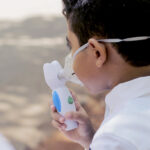Asthma, softball, and COVID-19: Gwen’s story
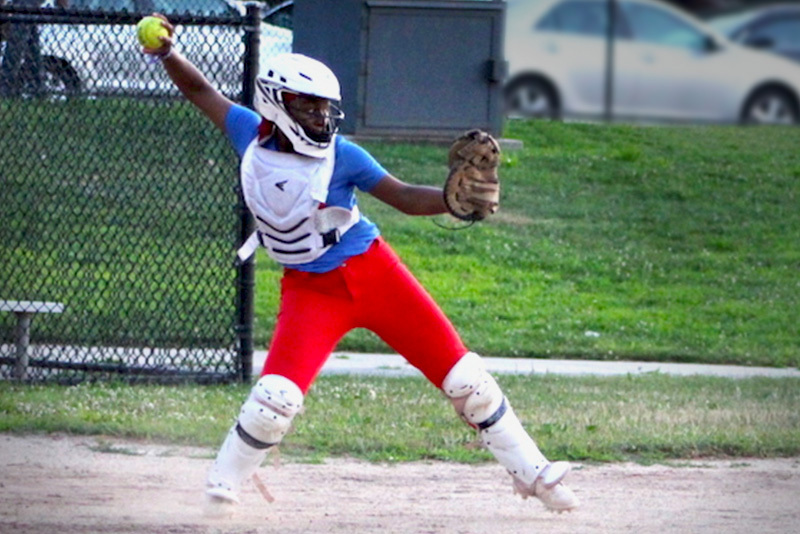
Gwendolyn Castro has a competitive streak. Whether playing softball or debating topics like universal health care, the 15-year-old wants to be the best at whatever she does. Her mom, Alicia Cacho, doesn’t want Gwen’s asthma to hold her back in any way. Over the years, both have learned that the best way to keep asthma under control is to take it seriously.
Gwen was diagnosed with asthma when she was 7. For more than half of her life, Dr. Alexandra Epee-Bounya, clinical chief of pediatrics at Boston Children’s Primary Care at Martha Eliot, has worked with Gwen and Alicia to help them understand the condition and how to manage it. “This was all new to me,” says Alicia. “Dr. Epee-Bounya helped me accept that my daughter has asthma and taught us both how to be vigilant.”
When rebellion and asthma management don’t mix
Like a lot of kids, Gwen’s moods fluctuated through her tween and early teen years, and so did her approach to managing asthma. For a while, she didn’t want to take her daily medications — an act of rebellion that didn’t work out too well. More than once, Alicia had to rush Gwen to the emergency room as she struggled to breathe.
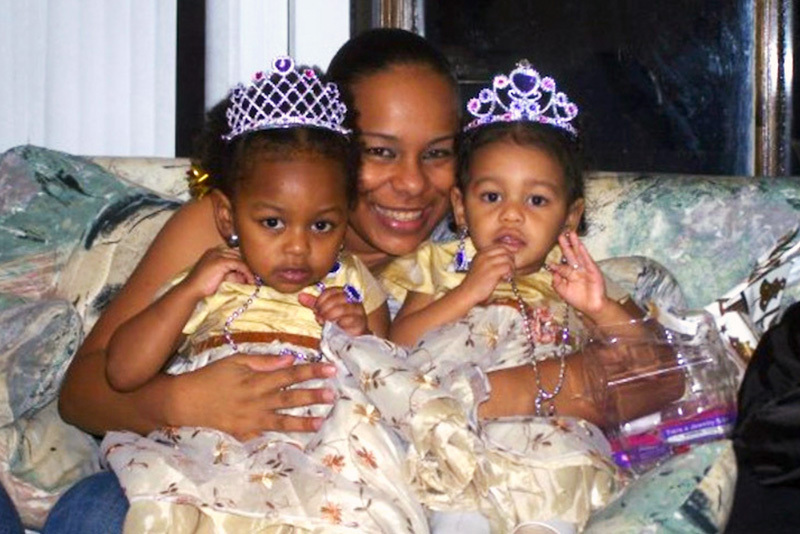
As the family’s primary care provider, Dr. Epee-Bounya worked with Gwen to make sure she understood her asthma action plan. The plan includes details about the long-term controller medications she needs to take every day to control her asthma. It also explains how to use quick-reliever medications for an asthma flare, and when to seek medical care.
Gwen says, “Dr. Epee-Bounya helped me understand it’s not just me. A lot of kids have asthma.”
Asthma at bat
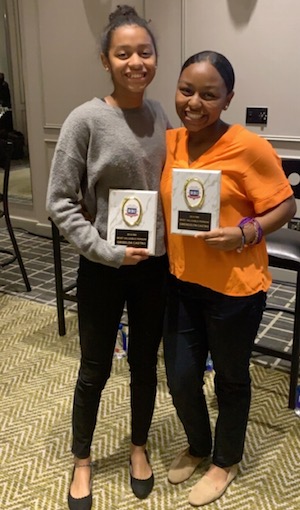
Even now that Gwen has embraced her asthma action plan, the condition can flare up at inconvenient times. Softball practice is one example. Gwen and her teammates were running laps in early July when her competitive nature kicked in. “I was at the front of the pack thinking, ‘I’ll be fine,’” she says. “Then I wasn’t fine. I was literally gasping for air.”
Alicia remembers how hot it was when the flare happened. As she watched Gwen kick into high gear, her internal alarm bells went off. “I’m always telling her, ‘You don’t have to be first or second. Run slower.’” Alicia rolls her eyes, adding, “But I know nothing.” Fortunately, she had Gwen’s inhaler and was able to bring Gwen’s symptoms under control.
Afterwards, Alicia asked her younger daughter, Gricelda, to keep her eye out for her sister. At 14, Gricelda is just as high-achieving but a bit more laid back than Gwen. The two sisters will attend the same high school this year and play on the same team. “Gricelda agreed to try and take it slow when Gwen needs to take it slow,” says Alicia. “Because there’s no way Gwen wants her younger sister to be faster than her.”
Asthma and COVID-19
Gwen and Gricelda were both looking forward to the 2020 softball season when COVID-19 put their plans on hold. All sports got suspended, classes went virtual, and Alicia went into overdrive. “I was a crazy person. I sprayed everything with sanitizer. I only went to the store every ten days.” She allowed Gricelda, a pitcher, and Gwen, a catcher, to practice in the driveway, but even letting them outside of the apartment stressed her out.
“I’ve been at emergency room worried sick about Gwendolyn too many times,” she says, adding, “There’s too much we don’t know about this virus.”
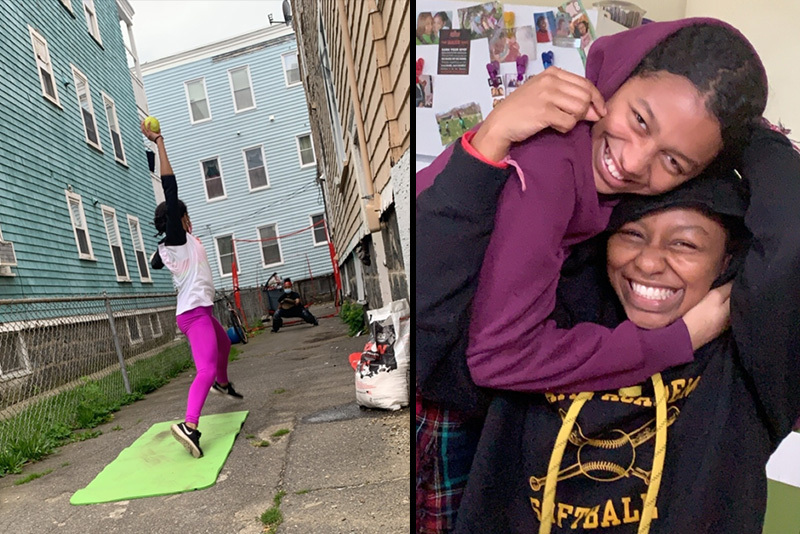
Looking ahead
After a spring semester of online classes, Gwen and Gricelda are eager to return to school in person this fall. Both are enrolled at the Winsor School, a private school for girls in Boston. The school’s small size gives Alicia some comfort. Maintaining physical distance will be easier than at a large public school. And she appreciates everything the school is doing to ensure its students’ safety. But like families around the country, Alicia, Gwen, and Gricelda are waiting to see how things play out.
As they look to the future, all three are grateful for Dr. Epee-Bounya’s role in their lives. “She’s very proud of us for being the hard-working girls that we are,” says Gricelda. “She always asks us about school and congratulates us when we get good grades,” says Gwen. “She really cares what is going on in our lives.”
Related: Asthma and COVID-19: Four things families need to know
Get more answers about Boston Children’s response to COVID-19 and learn about Boston Children’s Primary Care at Martha Eliot.
Related Posts :
-

Model enables study of age-specific responses to COVID mRNA vaccines in a dish
mRNA vaccines clearly saved lives during the COVID-19 pandemic, but several studies suggest that older people had a somewhat reduced ...
-

EarlyBird: Addressing dyslexia through game play
Up to 10 percent of the population has dyslexia, yet many children are diagnosed only after struggling with reading for years. ...
-

Will early intervention prevent asthma in school-age children?
Asthma affects about 1 in 10 children, often sending them to the emergency room or causing them to miss school. Allergic conditions ...
-

New insight into the effects of PPIs in children
Proton-pump inhibitors (PPIs) are frequently prescribed to suppress stomach acid in patients with gastroesophageal reflux disease (GERD). Prescribing rates of ...




